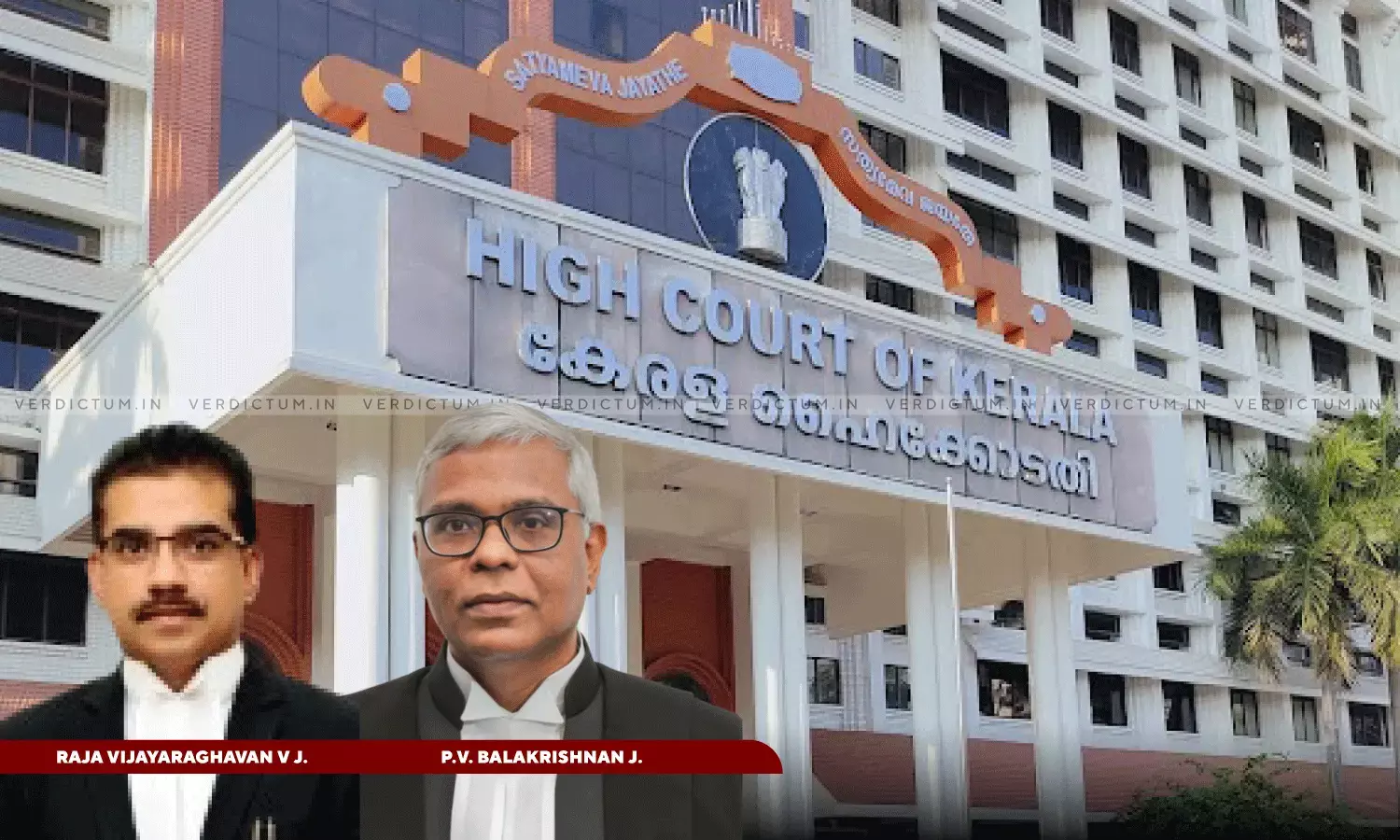Charge Sheet Is Defective If Filed Without Ascertaining Mental State Of Accused; Reflects Dishonest Approach Of Investigating Officer: Kerala HC Acquits Mother Accused Of Filicide
The Kerala High Court acquitted a mother accused of filicide after observing that the act of the investigating officer filing the charge sheet without ascertaining her mental state reflects a dishonest approach, thereby rendering the said charge sheet defective.
The Court set aside the conviction of a mother (Appellant) under Section 302 of the IPC accused of strangling her 1.5-year-old son, after noting that there was a “deliberate suppression” of the mother’s mental state aimed at securing a conviction by the Investigating Officer. Initially reported as an accidental death due to a fall, the police later charged the Appellant with murder.
A Division Bench of Justice Raja Vijayaraghavan V and Justice P.V. Balakrishnan held, “The filing of the charge sheet by the Investigating Officer, without ascertaining the mental state of the accused, reflects a dishonest approach, rendering the charge sheet defective due to the lack of investigation into this critical aspect. It can be reasonably inferred that the deliberate suppression of an investigation into the accused's mental state was aimed at securing a conviction, even though the acts, when considered alongside Section 84 of the IPC, may not constitute an offence. We, therefore, conclude that the appellant is entitled to succeed and the appeal is liable to be allowed on the above ground.”
Advocate Manju Antoney appeared for the Appellant, while Senior Public Prosecutor Neema T.V. represented the Respondent.
The Trial Court had convicted the Appellant, relying on the testimony of her husband and medical evidence that indicated manual strangulation. However, during the Trial, the Defense argued that the Appellant was suffering from ‘depression with psychotic symptoms’ and was unaware of her actions at the time of the alleged crime.
The High Court stated that under Section 84 of the IPC, a person is exonerated from liability for doing an act on the ground of unsoundness of mind if he, at the time of doing the act, is either incapable of knowing (a) the nature of the act or (b) that he is doing what is either wrong or contrary to law.
“The onus of proving unsoundness of mind is on the accused. But, where during the investigation previous history of insanity is revealed, it is the duty of an honest investigator to subject the accused to a medical examination and place that evidence before the court, and if this is not done, it creates a serious infirmity in the prosecution case and the benefit of doubt has to be given to the accused,” it remarked.
The Bench reiterated the importance of ensuring a thorough investigation in cases involving mental health issues. It referred to the decision in Dahyabhai Chhaganbhai Thakkar v. State of Gujarat (1964), which clarified the law on the plea of insanity and the necessity of an inquiry into the accused's mental state.
Consequently, the Court acquitted the Appellant, holding that the investigation was neither fair nor impartial and observed, “A clear distinction must be drawn between a defective investigation and one tainted by deliberate or calculated actions or omissions. While a defective investigation does not automatically benefit the accused, it can have significant implications if it undermines the very foundation of the prosecution case. Courts are duty-bound to scrutinize the available evidence and uncover the truth, guided by the principle that every case represents a journey toward justice.”
Accordingly, the High Court allowed the Appeal.
Cause Title: Rollymol v. State of Kerala (Neutral Citation: 2024:KER:95159)




